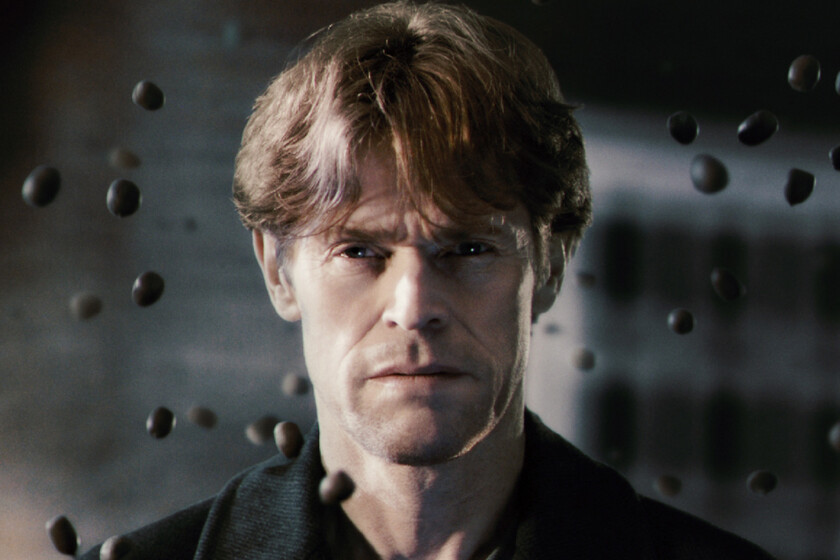"Anticristo" by Lars Von Trier: A Controversial Masterpiece
In the realm of cinema, there are certain films that leave a lasting impact, sparking discussions and debates long after their release. One such film is ‘Anticristo’ by the renowned filmmaker Lars Von Trier. Sixteen years have passed since its premiere, yet it continues to provoke diverse reactions from audiences, ranging from admiration for its groundbreaking narrative to criticism for its grotesque themes and perceived misogyny.
Willem Dafoe, the acclaimed actor who portrays the protagonist in the film, stands firmly in support of Von Trier’s vision, despite the polarizing reception the movie received. At the Cannes Film Festival where it debuted, the ecumenical jury even went as far as dubbing it "the most misogynistic film by the self-proclaimed best director in the world." This statement only further divided critics, with some dismissing it as sensationalism while others hailed it as a bold masterpiece.
Dafoe himself has defended the film, emphasizing its exploration of complex themes such as the power dynamics between men and women, the fear men harbor towards women, and the clash between logic and mysticism in life. Contrary to popular belief, he asserts that ‘Anticristo’ is not misogynistic but rather a thought-provoking piece that delves into the intricacies of human relationships and societal norms.
Despite the controversies surrounding the film, Dafoe praises Von Trier’s artistry, acknowledging him as a curious and talented filmmaker who pushes boundaries and challenges conventional storytelling. He highlights the cinematic brilliance of the opening scene and epilogue, underscoring the director’s unique perspective and dedication to creating thought-provoking narratives that may not cater to mainstream tastes but resonate deeply with discerning viewers.
In a world where cinematic discourse is increasingly overshadowed by fleeting trends and superficial analyses, Dafoe’s words serve as a reminder of the importance of engaging with complex and challenging works of art. He laments the decline of in-depth film criticism and the rise of bite-sized content that fails to capture the depth and nuance of sophisticated storytelling, calling for a return to meaningful dialogue that honors the intelligence and creativity inherent in cinema.
As ‘Anticristo’ continues to spark conversations and elicit strong reactions from audiences, it stands as a testament to the enduring power of provocative cinema that dares to push boundaries and confront uncomfortable truths. Whether viewed as a work of genius or a controversial misstep, Von Trier’s film remains a compelling and divisive piece of art that demands attention and introspection from those willing to engage with its challenging themes and unconventional narrative.
Conclusion
In conclusion, ‘Anticristo’ by Lars Von Trier is a film that defies easy categorization, inviting viewers to grapple with its complex themes and unsettling imagery. While it has been met with both adulation and condemnation, the enduring relevance of the film speaks to its impact and staying power in the realm of cinema. As we reflect on the legacy of ‘Anticristo’ and the debates it continues to inspire, we are reminded of the importance of engaging with challenging art that pushes boundaries and sparks meaningful dialogue.
Frequently Asked Questions
- Is ‘Anticristo’ a misogynistic film?
- Despite claims of misogyny, the film delves into nuanced themes surrounding gender dynamics and societal norms, challenging viewers to confront uncomfortable truths.
- What is the significance of Willem Dafoe’s role in the film?
- Dafoe’s portrayal of the protagonist adds depth and complexity to the narrative, anchoring the film in a powerful exploration of human relationships and psychological turmoil.
- Why has ‘Anticristo’ remained controversial over the years?
- The film’s provocative themes, graphic imagery, and bold storytelling have contributed to its enduring controversy and polarized reception among audiences and critics.
- How does Lars Von Trier’s direction contribute to the film’s impact?
- Von Trier’s distinct directorial style, marked by unconventional storytelling and visual aesthetics, elevates ‘Anticristo’ to a bold and thought-provoking cinematic experience.
- What is the legacy of ‘Anticristo’ in the realm of cinema?
- The film’s lasting impact on audiences and its ability to provoke discussions on complex themes cement its status as a seminal work of provocative cinema that pushes boundaries.
- How does ‘Anticristo’ challenge traditional narratives in cinema?
- By subverting conventional storytelling tropes and exploring taboo subjects, the film challenges viewers to rethink their preconceptions and engage with uncomfortable truths.
- What are some key themes explored in ‘Anticristo’?
- The film delves into themes of power dynamics, gender relations, psychological trauma, and the intersection of logic and mysticism in human experience, offering a rich tapestry of complex ideas.
- What sets ‘Anticristo’ apart from other films in Lars Von Trier’s filmography?
- ‘Anticristo’ stands out for its raw intensity, bold imagery, and unflinching exploration of dark themes, marking a departure from Von Trier’s previous works while showcasing his evolution as a filmmaker.
- How has the critical reception of ‘Anticristo’ evolved over time?
- While initial reactions were polarized, the film has garnered a cult following and sparked ongoing debates, with some critics reevaluating its merits and others reaffirming their initial assessments.
- What makes ‘Anticristo’ a must-watch for cinephiles?
- For cinephiles seeking challenging and thought-provoking cinema, ‘Anticristo’ offers a unique and immersive experience that pushes boundaries and prompts deep reflection on the complexities of human nature and relationships.
Tags: Anticristo, Lars Von Trier, Willem Dafoe, provocative cinema, gender dynamics, psychological trauma.
- For cinephiles seeking challenging and thought-provoking cinema, ‘Anticristo’ offers a unique and immersive experience that pushes boundaries and prompts deep reflection on the complexities of human nature and relationships.

